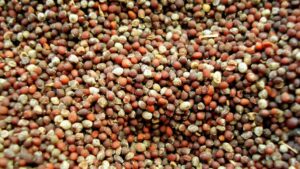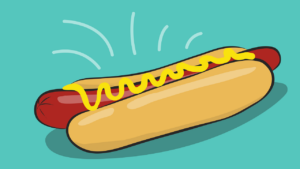Germination and Seeds Canada put out the call to companies moving the needle in technology development. Here’s who stood out as forward-thinking innovators.

The world population continues to climb — according to the United Nations, we’re now at 8 billion — and the need for more food and fibre is looming. The seed industry, farmers, and consumers alike need innovations more today than ever before.
They’re looking for innovations that not only add yield and increase ROI, but contribute to sustainability as well. This year, Germination and Seeds Canada put out the call to find innovators who are making a difference in the seed world.
Some of these names might be familiar to you, others might be new to you. Whether or not you’ve heard of them before, you’ll know them now. To be eligible for our list, all eight companies displayed an innovative approach in the following categories:
• Novelty of products: The company’s products are innovative and introduce a new concept or technology to the market, making them stand out from their competitors.
• Impact on sustainability: The company’s products and practices have a positive impact on the environment, promote sustainable farming practices, and reduce the carbon footprint of the agriculture industry.
• Scientific innovation: The company’s research and development are cutting-edge and have a significant impact on the agriculture industry, such as helping develop new plant traits or improving crop yield.
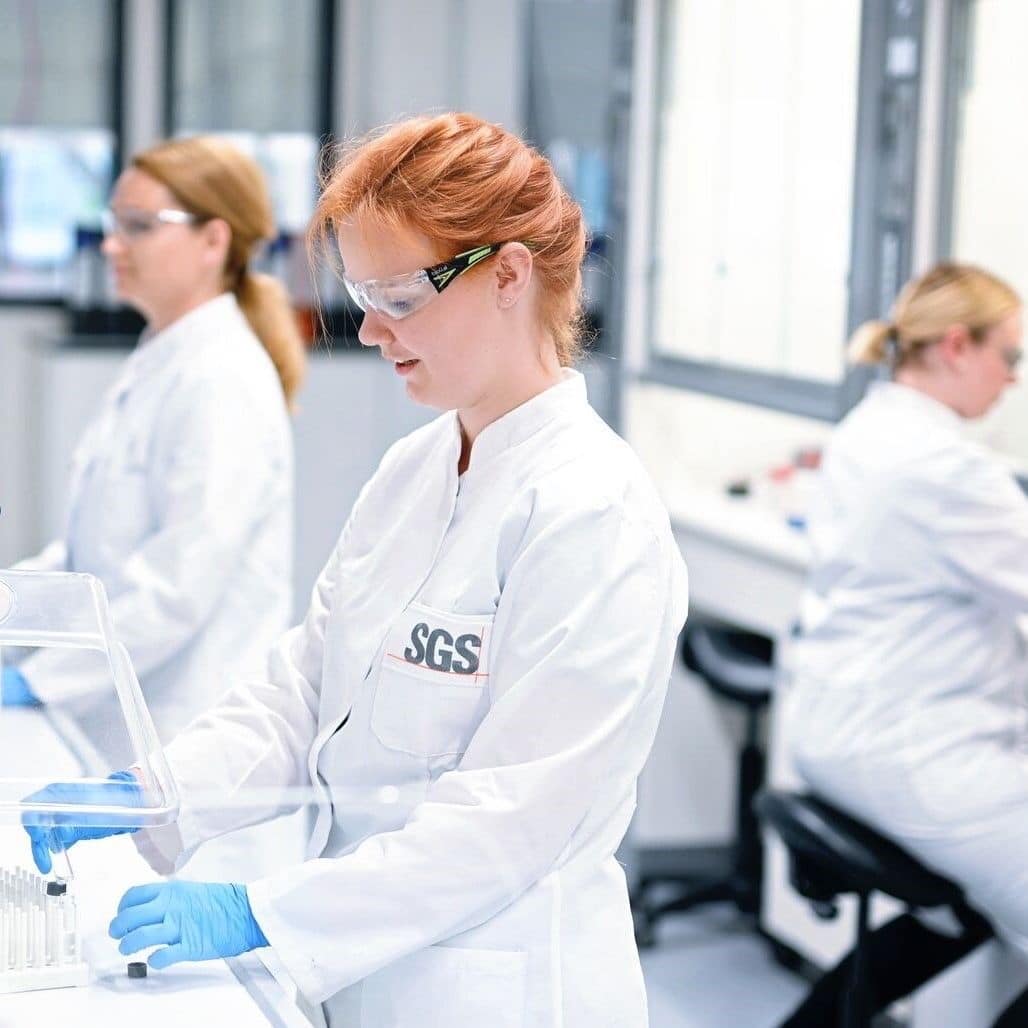
Company: SGS Canada (Sherwood Park, Alta.)
Innovation: Using Artificial Intelligence and Machine Learning to Advance Seed Identification
In the ever-evolving field of seed identification and quality testing, SGS Canada and its laboratory manager Janek Bartel have been at the forefront of harnessing the power of artificial intelligence (AI) and machine learning.

Through their efforts, SGS has successfully developed and implemented innovative techniques using third-party videometer technology to accurately identify seeds of different species.
The integration of AI and machine learning into seed identification processes marks a significant advancement in the industry. Bartel has successfully trained the algormithm in several species and has achieved exceptionally high accuracy scores, according to the company.
This technology will allow SGS Canada to offer a level of consistency and quality never before seen in the industry, the company says. It also allows SGS to secure its future as it looks to obtain significantly higher volumes in its seed quality laboratory. Bartel’s innovative implementation of this technology positions SGS well as its looks to expand the use of image analysis, AI and machine learning to improve and expand its seed quality testing services.
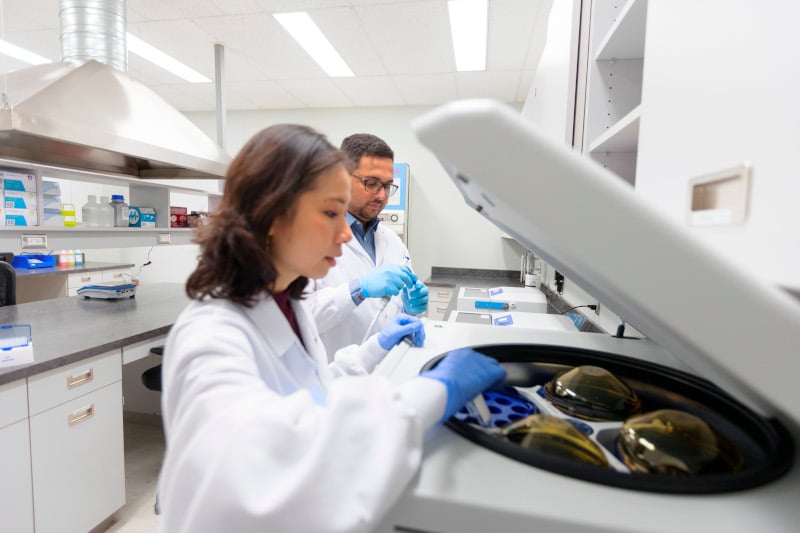
This cutting-edge technology not only provides precise and reliable seed identification but also sets a new benchmark in the field of seed identification, the company adds.
Company: NRGene Canada (Saskatoon, Sask.)
Innovation: Genomic Data Analysis for Trait Discovery and Breeding Program Enhancement
NRGene is an agtech company that uses AI and big data solutions to analyze genetic information to accelerate and improve the natural development of key crops and animals in the global agriculture and food industries.
A subsidiary of NRGene Technologies (a publicly traded company in the Tel Aviv Stock Exchange), NRGene Canada was established to serve as a leading research and development facility in North America and is located in the Saskatoon agricultural research cluster. The company runs several IP development projects on top Canadian crops, such as canola, wheat and oat.
Additionally, NRGene Canada operates a genotyping services lab which supports the efficient and optimized development of novel, higher-yielding traits and varieties of crops and animals. This lab serves both internal projects and external needs of the Canadian agtech community.
The company’s overarching goal is to generate additional value for its partners by using cutting-edge AI genomics technology to accelerate breeding processes to create a more sustainable future for Canada and the globe.
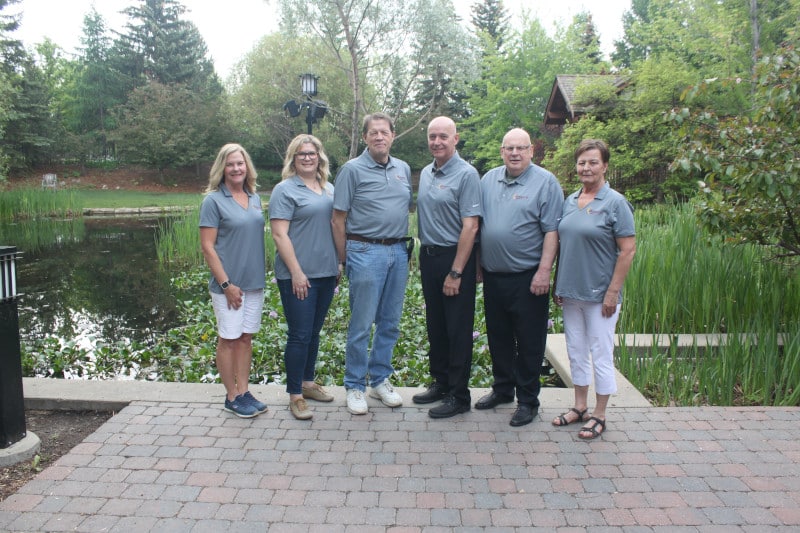
Company: Mustard 21 (Saskatoon, Sask.)
Innovation: Sterile Mustard Lines to Rid Fields of Disease
Saskatchewan’s Mustard 21 has listened closely to potato growers who faced the challenge of growing mustard alongside their potatoes and dealing with volunteer mustard plants in the subsequent year. Understanding their concerns, Mustard 21 — an offshoot of SaskMustard — developed a game-changing solution: a sterile line of mustard specifically designed for potato growers.
With this innovation, the plant no longer goes to seed, yet it continues to produce the same amount of biomass that is crucial for the bio needs of growers. The glucosinolates in the mustard are worked into the soil, providing natural pest control measures.
Mustard has been shown to control a variety of soilborne pests. These include verticillium rhizoctonia, fusarium, pythium, sclerotinia, common scab and range of nematodes. The use of mustard as a biofumigant has also shown a decrease in damage caused by wireworms.

Company: Lucent Bio (Vancouver, B.C.)
Innovation: Micronutrient Seed Coatings for Sustainable Crop Nutrition
Lucent Bio has attracted significant attention from industry peers by raising $19 million in funding from the Protein Industries Canada Supercluster and a group of investors to support Canadian growers’ efforts to elevate their sustainability efforts and reduce carbon emissions via the commercialization of its line of micronutrient fertilizers.
Lucent Bio’s newest product, Nutreos, is a biopolymer micronutrient seed coating that is plastic-free and non-toxic. Nutreos has been designed to improve germination, emergence and increase yields while being sustainable and climate-positive. What sets Nutreos apart is its embrace of the circular economy concept accomplished by upcycling food processing co-products into a seed-safe and effective nutrient delivery system for growers.
Nutreos introduces a novel and innovative mode of action for delivering nutrients to young seedlings. This bio-available, non-water-soluble form safeguards the nutrients from leaching or soil entrapment, ensuring they’re readily available to emerging plants. This approach allows for the delivery of nutrients to seedlings without having long-lasting negative effects on the soil, the company says.
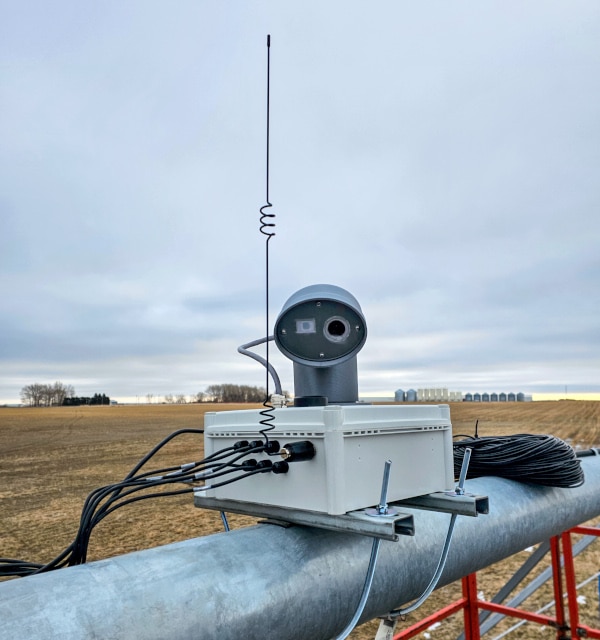
Company:
InteliRain (Calgary, Alta.)
Innovation: Precision Irrigation to Boost Yields and Water Efficiency
The InteliRain Micro-Precision Irrigation (MPI) System is changing the way farmers irrigate their fields. With its fully automated pivot irrigation solution, this system offers a 34% reduction in water usage and the potential for a 17% increase in crop yields, the company says.
At the heart of the InteliRain MPI System are multi-spectral robotic sensors mounted on each span of the pivot. These sensors scan the field ahead and behind the pivot, continuously collecting real-time field data. Leveraging offline communication, the sensor data is wirelessly transmitted to an on-site computer, ensuring seamless data collection and analysis.
By combining the real-time sensor data with weather information, the InteliRain MPI System generates precise watering prescriptions tailored to the specific needs of each micro-zone. This system employs advanced machine learning models to account for the unique characteristics of micro-zones within the field, resulting in highly accurate soil moisture predictions. These micro-zone-specific prescriptions are then automatically transmitted wirelessly to each span of the pivot, ensuring that each area receives the optimal amount of water.
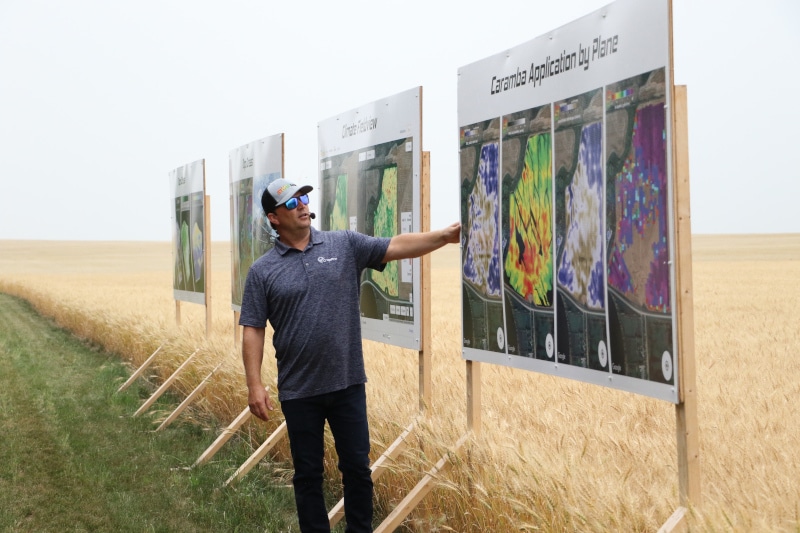
Company:
Croptimistic (Saskatoon, Sask.)
Innovation: Precision Seeding Through SWAT MAPS
In the world of precision agriculture, Croptimistic Technology Inc. is changing things with their solution: Soil, Water, and Topography (SWAT) MAPS. These high-resolution soil foundation maps are enabling farmers to reduce fertilizer use, which can lead to a reduction in greenhouse gases.
At the core of SWAT MAPS lies a process that combines multiple layers of data to create a single map. This map becomes a vital tool in executing variable rate applications of fertilizers, seeds, soil amendments, pesticides, herbicides and precision water management. By leveraging field variability insights, farmers can precisely tailor their inputs, boosting profitability while minimizing environmental impact.
One of the key advantages of SWAT MAPS is its ability to measure soil organic carbon. By accurately assessing soil health, farmers can prevent the over-application of nutrients, minimize run-off, and mitigate nitrogen losses and N2O emissions. This not only preserves valuable resources but also contributes to environmental sustainability, the company notes.
Company:
Bühler Group (Toronto, Ont.)
Innovation: AI for Enhanced Seed Processing
Bühler’s innovation has led to the development of the SORTEX H SpectraVision, an optical sorter designed to address the challenges faced in seed production. In response to issues such as higher raw material costs, climate change and mycotoxin contamination, Bühler reimagined the capabilities of an optical sorter. After extensive research and development, they successfully created an AI engine that allows the SORTEX H to self-adjust, minimizing the potential for human error, and allowing the user to run the machine intervention-free.
Additionally, Bühler devised a new algorithm that increases the accept ratio and defect concentration by an impressive 50%, surpassing their previous models and competitors. This innovation significantly improves seed quality and reduces waste in the production process. The SORTEX H increases germination by removing damaged and diseased seeds, as well as cross-contamination and foreign seeds.
SpectraVision effectively identifies and removes defects. This specialized feature enhances the overall quality of the seed processing industry, contributing to improved germination, crop production and consumer satisfaction, according to the company.
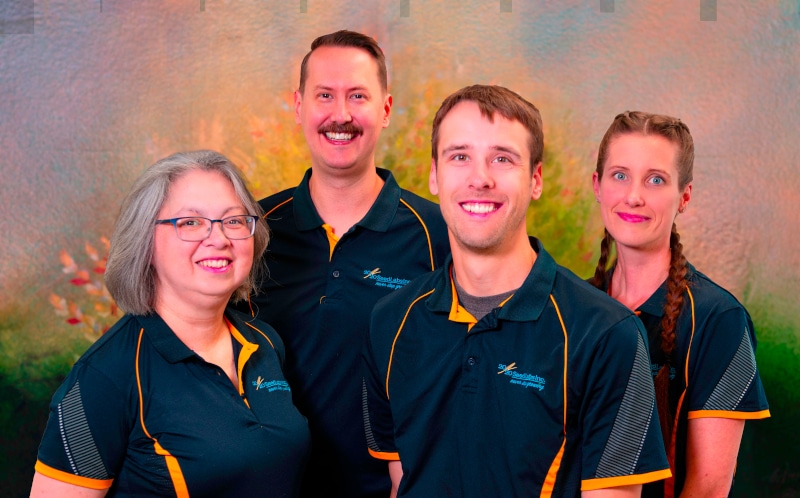
Company:
20/20 Seed Labs (Nisku, Alta.)
Innovation: Advanced Molecular and DNA Tests for Crop Threat Identification
20/20 Seed Labs has made significant strides in the field of crop threat identification by developing new tests using advanced molecular and DNA lab techniques. These innovative tests include many industry firsts, addressing various threats to crops in seed, soil, and plants, including Fusarium graminearum, clubroot, Aphanomyces, bacterial leaf streak, and soybean cyst nematode.
Collaboration between the 20/20 Seed Labs team, researchers, government agencies and growers is a crucial aspect of their innovation efforts. By closely working with these stakeholders, they ensure that the developed tests are accurate and meet the needs of growers. The team’s dedication to excellence and innovation in crop testing was recognized when they won a 2022 ASTech Award for Regional Innovation.
In addition to helping growers identify disease threats, the company also focuses on developing critical tests to protect resistance genetics and address issues such as herbicide-resistant weeds and varietal purity.



